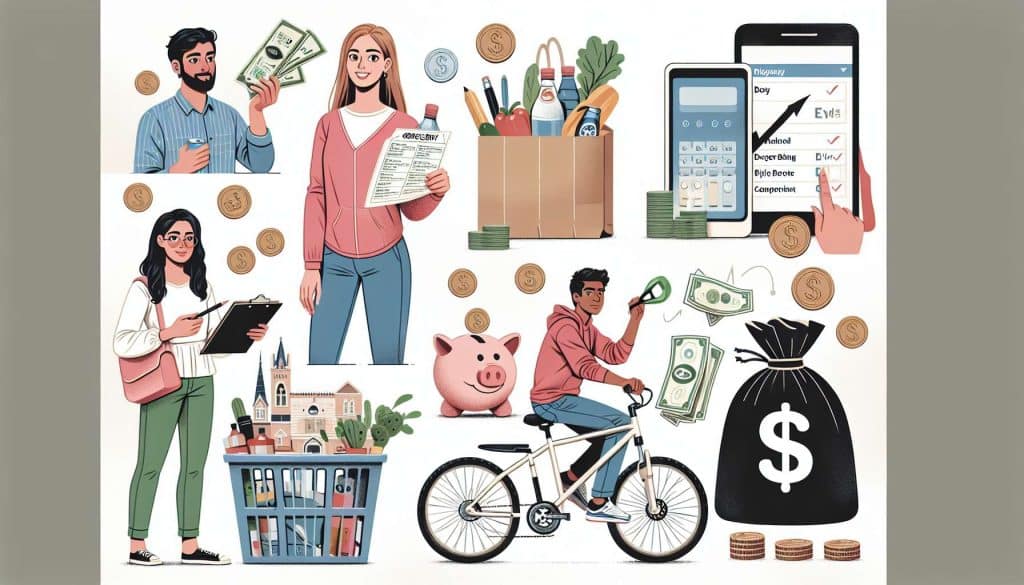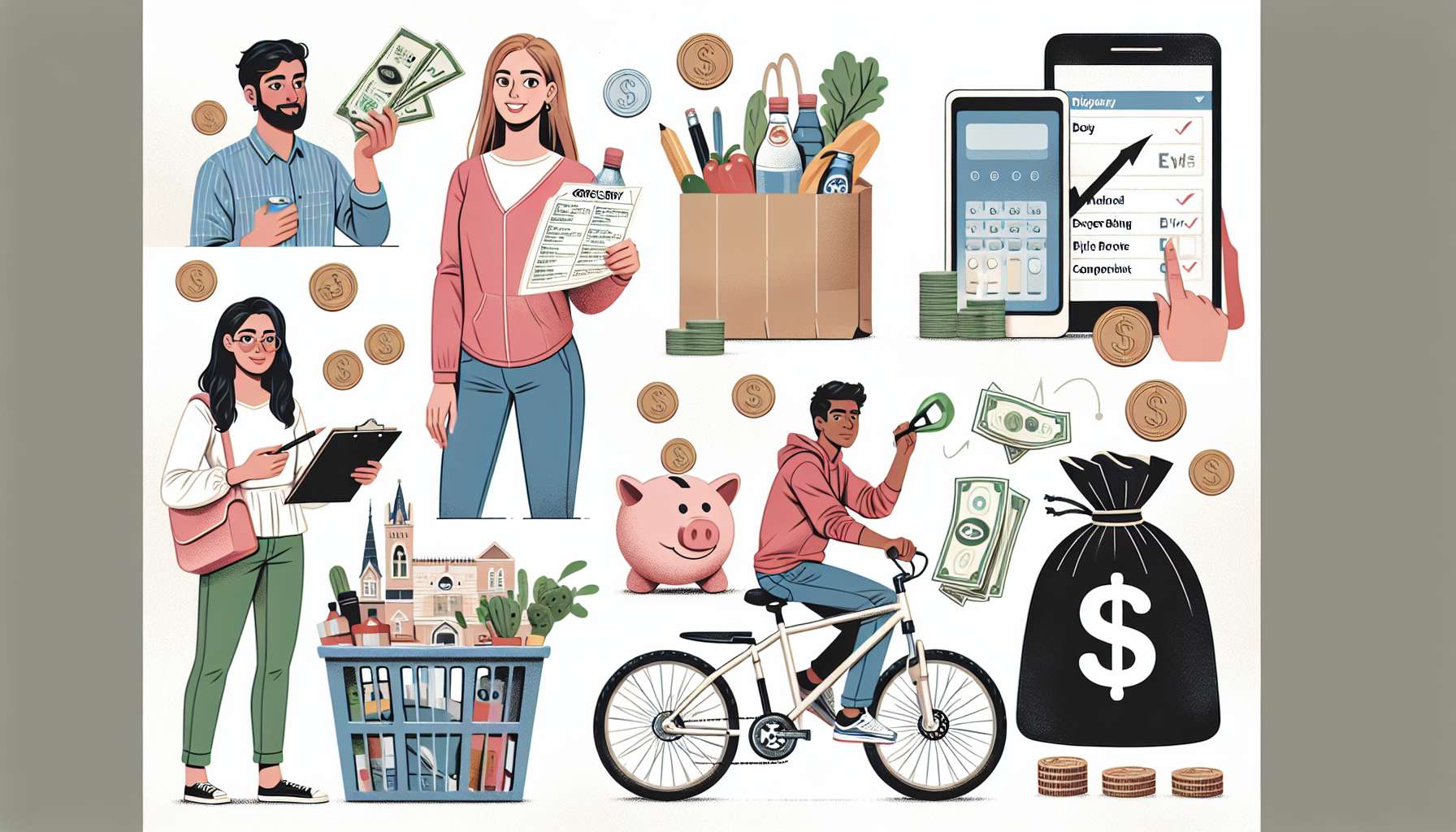Effortless Savings: Everyday Financial Tips for American Households


Anúncios
Saving money in everyday American life can often seem challenging. Many individuals feel trapped in a cycle of earning just to spend, leaving little room for savings. This guide aims to address this concern by offering practical money-saving strategies. Understanding the nuances of American culture and lifestyle, the tips provided here are designed to be seamless additions to your everyday routine, ensuring you can save without sacrificing comfort.
While many aspire to financial freedom, constant spending temptations and unexpected expenses can often derail those good intentions. But fear not, effective money-saving doesn’t necessarily demand drastic lifestyle changes. By taking small, consistent steps, you can steadily build a more secure financial future. In the paragraphs that follow, we’ll explore various strategies that can help you spend smarter and save more.
The key to success in saving money lies in implementing small, manageable changes to your habits. Whether it’s through smart shopping techniques, efficient energy use, or rethinking your hobbies and transportation, these strategies cater to a wide range of American lifestyles. The goal is to help you keep more money in your pocket while still enjoying life. Get ready to embark on your journey towards financial empowerment and success!
Anúncios
Overview of Money-Saving Strategies in America
One effective tactic is becoming adept at using coupons. Coupons are integrated into American consumer habits, with numerous platforms making them easily accessible. By diligently searching for and using coupons, you can significantly reduce your grocery and retail spending over time. This practice saves money and encourages a more intentional approach to purchasing.
Meal planning is another game-changer for reducing expenses. By outlining your meals for the week and crafting a corresponding shopping list, you can prevent impulse purchases and cut down on food waste. This method not only makes trips to the grocery store more efficient, but also can decrease the frequency of dining out, leading to substantial savings.
Saving on energy and utilities is also crucial. Consider investing in energy-efficient appliances and switching to LED bulbs to reduce electricity consumption. These actions can lower your utility bills while promoting environmental consciousness. Additionally, simple practices like unplugging unused electronics can lead to meaningful savings over time.
Anúncios
Creating a budget and sticking to it serves as a foundational practice for any saver. By tracking income and expenditures, individuals can identify areas to cut spending and set achievable saving goals. Using budgeting apps can simplify this process and maintain accountability, ensuring you’re living within your means and avoiding debt accumulation.
Build a robust emergency fund to act as a safety net. Start with manageable savings goals and aim to accumulate enough to cover several months of expenses. This buffer offers peace of mind against life’s unforeseen challenges, such as sudden medical costs or employment changes, helping maintain financial stability through unpredictability.
Characteristics of the Strategies
- Utilizing coupons to reduce everyday expenses.
- Meal planning to minimize impulse buying and food waste.
- Adopting energy efficiency to decrease utility bills.
- Budget creation to track and control spending.
- Establishing an emergency fund for unexpected events.
Benefits of Implementing These Strategies
Adopting these strategies not only aids in immediate cost reductions but also fosters long-term financial wellness. By becoming a savvy shopper and meal planner, routine expenses shrink, allowing savings to grow. Energy-efficient practices not only reduce bills but also support environmental sustainability, an advantageous dual outcome.
Budgeting allows for better financial management and clarity. By understanding spending patterns, savers can make informed decisions about where to cut costs, boosting confidence and control over finances. Having a structured plan prevents spending leakages and aligns spending with personal financial goals, emphasizing the importance of intentional financial planning.
Emergency funds provide noteworthy security. Financial stability can be significantly bolstered by having reserves for unforeseen circumstances. This financial cushion prevents disasters from seriously derailing your financial goals, offering a protective barrier that preserves monetary and emotional health during challenging times.
Transportation costs often weigh heavily on budgets; rethinking commuting can lead to significant savings. Carpooling, utilizing public transit, or cycling can cut fuel costs and prolong vehicle life. These alternatives often lead to savings in maintenance costs, offering financial relief in two areas at once—transport and vehicle management.
Engaging in hobbies and entertainment doesn’t necessitate significant expenditure. Exploring free community events or using local library resources can enrich life without compromising financial goals. This shift in perspective highlights that enjoyment doesn’t need to be costly, expanding cultural and recreational horizons without burdening finances.
Start implementing these strategies today and gradually, you’ll notice the positive impact on your finances. Every small step contributes to a larger picture of financial health, empowering you to make the most of your income. Remember, consistency is key and even minimal efforts can reap substantial long-term benefits. By focusing on these practical strategies, you’re setting the stage for a better financial future.





